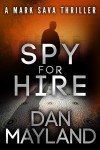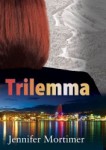

February 10 – 16: “Is travel essential to portray a setting? Is research ever enough?”
 This week we join ITW Members Jean Harrington, Dan Mayland, Stephen Carbone, Lisa Von Biela, Patrick Lee, Jennie Mortimer, Chris Knopf, Marc Cameron, Don Helin and John Howard Swain while they discuss travel vs. research: “Is travel essential to portray a setting? Is research ever enough?”
This week we join ITW Members Jean Harrington, Dan Mayland, Stephen Carbone, Lisa Von Biela, Patrick Lee, Jennie Mortimer, Chris Knopf, Marc Cameron, Don Helin and John Howard Swain while they discuss travel vs. research: “Is travel essential to portray a setting? Is research ever enough?”
~~~~~
 USA Today bestselling author, Marc Cameron is a retired Chief Deputy US Marshal and 29-year law enforcement veteran. His short stories have appeared in BOYS’ LIFE Magazine and the Saturday Evening Post. He’s published ten novels, six of them Westerns (several as a ghost writer and two under his pen name, Mark Henry). TIME OF ATTACK, fourth in his Jericho Quinn Thriller series, is new from Kensington, February of 2014. Marc lives in Alaska with his beautiful bride and BMW motorcycle.
USA Today bestselling author, Marc Cameron is a retired Chief Deputy US Marshal and 29-year law enforcement veteran. His short stories have appeared in BOYS’ LIFE Magazine and the Saturday Evening Post. He’s published ten novels, six of them Westerns (several as a ghost writer and two under his pen name, Mark Henry). TIME OF ATTACK, fourth in his Jericho Quinn Thriller series, is new from Kensington, February of 2014. Marc lives in Alaska with his beautiful bride and BMW motorcycle.
 Lisa von Biela worked in Information Technology for 25 years, then left the field to attend the University of Minnesota Law School, graduating magna cum laude in 2009. She now practices law in Seattle, Washington. Lisa’s first short story appeared in The Edge in 2002. Her short works have appeared in various small press venues, including Gothic.net, Twilight Times, Dark Animus, AfterburnSF, and more. Her debut novel, THE GENESIS CODE, was released in 2013. Her second novel, THE JANUS LEGACY, is due out in February 2014, and her first novella, ASH AND BONE, is set for release in May 2014.
Lisa von Biela worked in Information Technology for 25 years, then left the field to attend the University of Minnesota Law School, graduating magna cum laude in 2009. She now practices law in Seattle, Washington. Lisa’s first short story appeared in The Edge in 2002. Her short works have appeared in various small press venues, including Gothic.net, Twilight Times, Dark Animus, AfterburnSF, and more. Her debut novel, THE GENESIS CODE, was released in 2013. Her second novel, THE JANUS LEGACY, is due out in February 2014, and her first novella, ASH AND BONE, is set for release in May 2014.
 During Don Helin‘s time in the military, he spent seven years in the Pentagon. These assignments have provided him background for his thrillers. His first novel, THY KINGDOM COME was published in 2009. His second, DEVIL’S DEN has been selected as a finalist in the Indie Book Awards. Don lives in central Pennsylvania where he is working on “Secret Assault,” to be published in Spring 2014.
During Don Helin‘s time in the military, he spent seven years in the Pentagon. These assignments have provided him background for his thrillers. His first novel, THY KINGDOM COME was published in 2009. His second, DEVIL’S DEN has been selected as a finalist in the Indie Book Awards. Don lives in central Pennsylvania where he is working on “Secret Assault,” to be published in Spring 2014.
 Author of the bestselling Mark Sava spy-thriller series, Dan Mayland is an international traveler who brings his adventures to life on the page. He lives in Pennsylvania with his family.
Author of the bestselling Mark Sava spy-thriller series, Dan Mayland is an international traveler who brings his adventures to life on the page. He lives in Pennsylvania with his family.
Stephen Carbone is new to the novel writing world. His literary experience comes from penning regular articles for several aviation journals, a sort of open-door series. His thirty plus years in aviation were on both sides of the table – airline and government. Stephen has investigated major airline accidents; this first book, an aviation techno-thriller, closely parallels his first hand experiences with such disasters. Stephen and his wife of thirty-one years live in Virginia.
 Chris Knopf’s eleventh book, Cries of the Lost, was named one of the Five Best Mysteries of 2013. It was the sequel to Dead Anyway (2012), the 2013 winner of the Nero Award. Dead Anyway also received starred reviews from Publishers Weekly, Booklist, Kirkus and Library Journal. Publishers Weekly listed it as one of the Top Twelve Mysteries of 2012, the Boston Globe a Ten Best Crime Books of 2012. Knopf also writes the Sam Acquillo and Jackie Swaitkowski Hamptons Mystery series.
Chris Knopf’s eleventh book, Cries of the Lost, was named one of the Five Best Mysteries of 2013. It was the sequel to Dead Anyway (2012), the 2013 winner of the Nero Award. Dead Anyway also received starred reviews from Publishers Weekly, Booklist, Kirkus and Library Journal. Publishers Weekly listed it as one of the Top Twelve Mysteries of 2012, the Boston Globe a Ten Best Crime Books of 2012. Knopf also writes the Sam Acquillo and Jackie Swaitkowski Hamptons Mystery series.
 Jean Harrington is the author of the Naples-set Murders by Design Mystery Series featuring an interior designer as amateur sleuth with a tough-talking, kick-ass detective as her soft-at-heart love interest. A former English prof, Jean now writes for the exploding field of electronic publishing and is awed by its impact on readers and writers alike. Her books are also available in paperback through Harlequin’s Worldwide Mystery Library.
Jean Harrington is the author of the Naples-set Murders by Design Mystery Series featuring an interior designer as amateur sleuth with a tough-talking, kick-ass detective as her soft-at-heart love interest. A former English prof, Jean now writes for the exploding field of electronic publishing and is awed by its impact on readers and writers alike. Her books are also available in paperback through Harlequin’s Worldwide Mystery Library.
 John Howard Swain (Actor, Director, Producer) John has directed, produced or starredin over thirty plays, has appeared as a guest-star in dozens of television shows ranging from Hill Street Blues to Law and Order SVU and is the director of the multi-award winning filmA Younger Man. Currently working on a crime novel, Central Station, his book The Science & Art of Film Actingis used by actors throughout the world.
John Howard Swain (Actor, Director, Producer) John has directed, produced or starredin over thirty plays, has appeared as a guest-star in dozens of television shows ranging from Hill Street Blues to Law and Order SVU and is the director of the multi-award winning filmA Younger Man. Currently working on a crime novel, Central Station, his book The Science & Art of Film Actingis used by actors throughout the world.
 After a mixed education in literature, science and commerce, Jennifer Mortimer has worked as an IT executive in many countries and industries. She is currently the R&D project manager at Weta Digital, the people behind the special effects for AVATAR, LORD OF THE RINGS, and THE HOBBIT. Jennifer and her husband Paul split their time between a colonial villa in Wellington, New Zealand, and a Cathar castle in the south of France. TRILEMMA is her debut novel.
After a mixed education in literature, science and commerce, Jennifer Mortimer has worked as an IT executive in many countries and industries. She is currently the R&D project manager at Weta Digital, the people behind the special effects for AVATAR, LORD OF THE RINGS, and THE HOBBIT. Jennifer and her husband Paul split their time between a colonial villa in Wellington, New Zealand, and a Cathar castle in the south of France. TRILEMMA is her debut novel.
 Patrick Lee lives in Michigan. In addition to Runner, he is the author of the Travis Chase trilogy.
Patrick Lee lives in Michigan. In addition to Runner, he is the author of the Travis Chase trilogy.
- LAST GIRL MISSING with K.L. Murphy - July 25, 2024
- CHILD OF DUST with Yigal Zur - July 25, 2024
- THE RAVENWOOD CONSPIRACY with Michael Siverling - July 19, 2024
